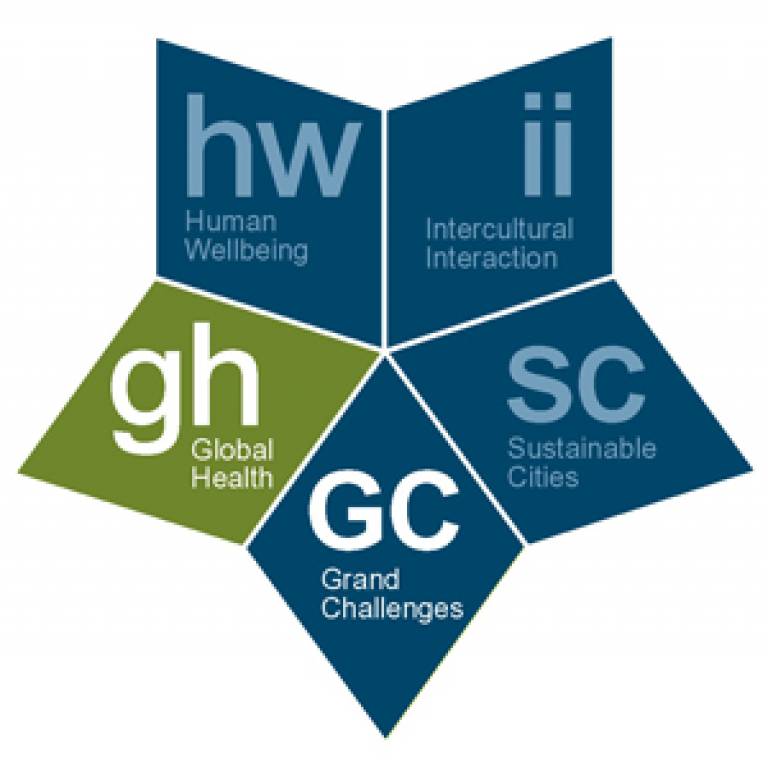Climate change time bomb for health
11 December 2008
Links:
 ucl.ac.uk/research/gc/" target="_self">UCL Grand Challenges
ucl.ac.uk/research/gc/" target="_self">UCL Grand Challenges
Three UCL academics shared a range of perspectives in 'Too Hot to Handle: The Climate Change Time Bomb for Health, an event on 4 December 2008 at the British Museum.
Despite their different disciplines - palaeo-climatology, cardiovascular genetics, and maternal and child health - they were in agreement that climate change is the greatest threat to human health and survival.
Professor Mark Maslin (UCL Environment Institute) gave the scientific background to the impact of carbon dioxide emissions on climate. Citing recent models suggesting that the Earth's temperature will rise by as much as 6 degrees C, he put this in context by noting that during the most recent ice age the world had been only 6 degrees C cooler. Rising temperatures had been shown to increase the frequency of extreme events, to the detriment of human health. As temperatures rose, human spent an increasing amount of time outside their 'coping zone'.
Professor Hugh Montgomery (UCL Institute for Human Health & Performance) emphasised the rapidity of climate change, with disastrous events happening increasingly often. He discussed the escalating scale of impacts we could expect from unchecked climate change: from deaths and injuries from heat, to pollution, food-related illnesses, altered vectors for diseases such as malaria, crop failure and water shortages, mass migration, resource wars, economic collapse, and ecosystem collapse with mass extinctions.
In response to a question from the audience, Professor Montgomery said that his personal experience of contact with senior politicians and policymakers indicated that western governments sorely underestimated the severity of the situation and the need for urgent action.
Professor Anthony Costello (UCL Institute for Global Health) described the range of complexity of challenges presented by climate change: informational; relating to poverty and inequity; technological; cultural and behavioural; and relating to governance and institutional policy and practice. He described some of the pathways through which progress could be made.
The session was chaired by Professor David Napier (UCL Anthropology), of the UCL Centre for Applied Global Citizenship, as part of a joint UCL-British Museum public lecture series 'Making Things Better'.
These four academics are members of the Lancet-UCL Commission on managing the human-health effects of climate change, which will report in the New Year. Coordinated by the UCL Institute for Global Health, the commission drew on a wide range of expertise and experience, including that of the Benfield UCL Hazard Research Centre, UCL Civil, Environmental & Geomatic Engineering, the UCL Development Planning Unit, UCL Earth Sciences, UCL Economics, UCL Epidemiology & Public Health, the UCL Centre for International Health & Development, UCL Laws, UCL Mathematics, UCL Philosophy, UCL Political Science, UCL Population Health, the UCL Institute for Women's Health and UCL students.
The commission exemplifies UCL's approach to applying its cross-disciplinary expertise to the resolution of the world's major problems, the Grand Challenges, for example, of global health, sustainable cities, intercultural interaction and human wellbeing.
To find out more, use the links at the top of this article.
 Close
Close

